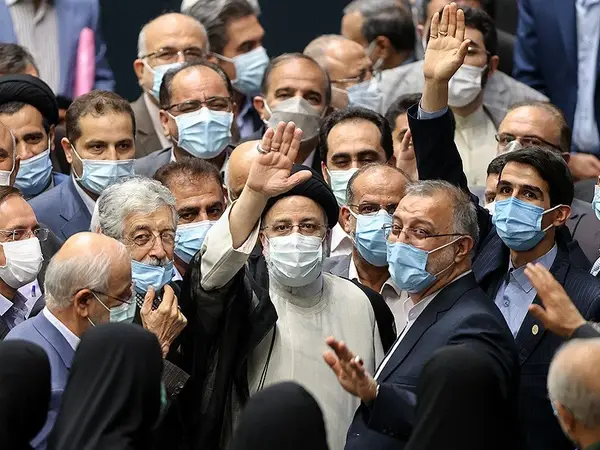Some of Iran's conservatives are said to be thinking of distancing themselves from President Ebrahim Raisi to guarantee their electability in future elections.
Iran's conservatives who call themselves "Principlists" formed a coalition with Raisi in June and helped him win the presidential election. At least three rival conservative candidates have now major posts in the government: Vice President Mohsen Rezaei, martyrs Foundation Chief Amir Hossein Ghazizadeh Hashemi and Mayor of Tehran Alireza Zakani. Nonetheless, Raisi insists that he was an independent candidate.
Now, most of the criticism by conservatives who are not part of the administration is about Raisi's ministerial cabinet choices. Many, particularly those in the parliament have lashed out at Raisi for nepotism and giving key jobs to well-connected individuals with little or no qualifications.
Other conservatives argue that six months is not long enough time for passing judgement on Raisi and his ministers' performance. However, eye-catching shortcomings in his performance and his failure to carry out some of his promises, have prompted many conservatives to believe that their support for Raisi may damage their reputation.
Raisi’s worst intractable problem is controlling runaway inflation that is impoverishing millions of working-class citizens. He made lofty promises during his campaign, but independent observers knew that without an agreement with the United States and lifting of sanctions, Iran had no chance to resolve its economic crisis even partially.
Rasoul Salimi a journalist at Khabar Online, a moderate conservative website has observed, that Raisi’s weak performance has left Iran's conservatives with three choices - "unconditionally supporting" Raisi, lending some kind of "critical support" to the president, or changing their position from supporters of Raisi and his team to their "critics."
According to Salimi, making this choice is particularly important because once Raisi's failure is established and dissatisfaction over his administration's performance becomes widespread, it will be extremely difficult for conservatives to deny their support for the winner of the June election. They supported Raisi because they thought he can solve the country's economic problems having a conservative parliament, judiciary and military behind him.
It was a coalition of four political forces including the right-wing Society of Combatant Clerics, the young conservatives who had won the 2020 parliamentary elections, the former supporters of populist President Mahmoud Ahmadinejad and the entire fleet of conservative media in Iran risked their credibility when they joined hands to send Raisi to the Presidential Office.
All of these groups have already risked their voter base and have occasionally come under attack by their young supporters who think they have been misled to support a president and an administration that are not competent enough and at times have caused embarrassment.
The frustration by young conservatives became apparent during a ceremony at a university earlier this month, when a leader of an Islamist student group harshly criticized Raisi in his presence, saying he is not a freely-elected president.
“We are speaking to you not as a president elected with the free vote of the people in a free election. We are speaking to you as a representative of the ruling system,” the student lamented.
